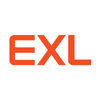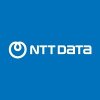
i
eClerx
Filter interviews by
eClerx Financial Analyst Interview Questions and Answers for Experienced
22 Interview questions
A derivative is a financial instrument whose value is based on an underlying asset or index.
Derivatives can be used for hedging risk or speculation.
Common types include options, futures, and swaps.
For example, a stock option gives the right to buy/sell a stock at a predetermined price.
Futures contracts obligate parties to buy/sell an asset at a future date at a specified price.
Swaps involve exchanging cash flows o...
Hedging is a risk management strategy used to offset potential losses in investments by taking an opposite position in a related asset.
Hedging involves taking a position in a financial instrument that is negatively correlated with a particular asset or investment.
It is used to reduce the risk of adverse price movements in the market.
Common hedging techniques include using options, futures contracts, and derivative...
Mutual funds are investment vehicles that pool money from multiple investors to invest in a diversified portfolio of stocks, bonds, or other securities.
Mutual funds are managed by professional fund managers who make investment decisions on behalf of the investors.
Investors can buy shares of mutual funds, which represent their ownership in the fund's portfolio.
Mutual funds offer diversification, liquidity, and prof...
Derivatives are financial instruments whose value is derived from an underlying asset or group of assets.
Derivatives can be used for hedging, speculation, or arbitrage
Examples of derivatives include futures, options, swaps, and forwards
Derivatives can be traded on exchanges or over-the-counter
Derivatives played a role in the 2008 financial crisis
What people are saying about eClerx






Capital markets are platforms where companies and governments can raise funds by selling securities to investors.
Capital markets facilitate the flow of capital between investors and borrowers.
They provide a means for companies and governments to raise funds for projects and operations.
Securities traded in capital markets include stocks, bonds, and other financial instruments.
Examples of capital markets include the...
Bullish market is when the stock prices are rising, while bearish market is when the stock prices are falling.
Bullish market is characterized by optimism and confidence among investors.
Bearish market is characterized by pessimism and fear among investors.
Bullish market is associated with high trading volumes and increased demand for stocks.
Bearish market is associated with low trading volumes and decreased demand ...
A credit default swap is a financial contract that allows an investor to transfer the credit risk of a bond or loan to another party.
It is a type of derivative instrument
The buyer of the swap pays a premium to the seller in exchange for protection against default on a particular bond or loan
If the bond or loan defaults, the seller of the swap pays the buyer the face value of the bond or loan
Credit default swaps pl...
Debentures are a type of debt instrument issued by companies or governments to raise capital.
Debentures are essentially loans that investors provide to the issuer
They typically have a fixed interest rate and a maturity date
Debentures are unsecured, meaning they are not backed by collateral
They can be traded on stock exchanges, making them a popular investment option
Examples of companies that have issued debentures...
Capital refers to the financial resources that a company uses to fund its operations and investments.
Capital can come from various sources such as equity, debt, and retained earnings.
It is used to purchase assets, pay for expenses, and invest in growth opportunities.
Capital structure refers to the mix of debt and equity that a company uses to finance its operations.
Examples of capital include cash, investments, pr...
Share market is a platform where stocks and securities are traded publicly.
Share market is also known as stock market or equity market.
It provides a platform for companies to raise capital by selling shares to the public.
Investors can buy and sell shares of publicly traded companies through stock exchanges.
The prices of shares are determined by supply and demand.
Share market is influenced by various factors such a...
eClerx Financial Analyst Interview Experiences for Experienced
26 interviews found
I appeared for an interview in May 2025, where I was asked the following questions.
- Q1. Write a email for personal leave.
- Ans.
Requesting personal leave due to unforeseen circumstances, ensuring minimal disruption to work responsibilities.
Start with a polite greeting, e.g., 'Dear [Manager's Name],'
Clearly state the purpose of the email, e.g., 'I am writing to formally request personal leave.'
Specify the dates you will be absent, e.g., 'I would like to request leave from [start date] to [end date].'
Mention the reason for leave briefly, e.g., 'D...
- Q2. Talk on the subject
- Ans.
Financial analysts evaluate financial data to guide investment decisions and improve financial performance.
Role: Analyze financial statements to assess company performance.
Tools: Use Excel and financial modeling software for data analysis.
Example: Create forecasts to predict future revenue based on historical data.
Collaboration: Work with management to develop budgets and financial strategies.
Reporting: Prepare reports...
Interview Preparation Tips
I applied via Referral and was interviewed in Aug 2024. There was 1 interview round.
(2 Questions)
- Q1. Define Capital Market and Money Market
- Ans.
Capital market is where long-term securities are bought and sold, while money market deals with short-term debt securities.
Capital market involves trading of long-term securities such as stocks and bonds
Money market deals with short-term debt securities like treasury bills and commercial paper
Capital market helps in raising long-term funds for companies and governments
Money market provides short-term liquidity to finan...
- Q2. What is Derivatives
- Ans.
Derivatives are financial instruments whose value is derived from an underlying asset or group of assets.
Derivatives can be used for hedging, speculation, or arbitrage.
Common types of derivatives include options, futures, forwards, and swaps.
Derivatives allow investors to take on risk or hedge against risk in the financial markets.
They are often used by financial institutions, corporations, and individual investors.
Exa...
(4 Questions)
- Q1. Summary on covid
- Q2. About myself???
- Q3. What if finance?/
- Ans.
Finance is the management of money and investments to achieve financial goals.
Finance involves analyzing financial data to make informed decisions
It includes budgeting, investing, and risk management
Examples of finance careers include financial analyst, investment banker, and financial planner
- Q4. Derivatives and its types
- Ans.
Derivatives are financial instruments whose value is derived from an underlying asset or group of assets.
Types of derivatives include options, futures, forwards, and swaps.
Options give the holder the right, but not the obligation, to buy or sell an asset at a specified price before or on a specified date.
Futures are contracts to buy or sell an asset at a predetermined price on a specified date in the future.
Forwards ar...
I appeared for an interview in Aug 2024.
(1 Question)
- Q1. Resume check from br
(1 Question)
- Q1. What is meant by derivative
- Ans.
A derivative is a financial instrument whose value is based on an underlying asset or index.
Derivatives can be used for hedging risk or speculation.
Common types include options, futures, and swaps.
For example, a stock option gives the right to buy/sell a stock at a predetermined price.
Futures contracts obligate parties to buy/sell an asset at a future date at a specified price.
Swaps involve exchanging cash flows or lia...
I didnt clear the aptitude test
30 min 60 questions.
(2 Questions)
- Q1. What is derivatives?
- Ans.
Derivatives are financial instruments whose value is derived from an underlying asset or group of assets.
Derivatives can be used for hedging, speculation, or arbitrage.
Examples of derivatives include options, futures, forwards, and swaps.
Derivatives allow investors to take on risk or hedge against risk in the financial markets.
- Q2. What is hedging?
- Ans.
Hedging is a risk management strategy used to offset potential losses in investments by taking an opposite position in a related asset.
Hedging involves taking a position in a financial instrument that is negatively correlated with a particular asset or investment.
It is used to reduce the risk of adverse price movements in the market.
Common hedging techniques include using options, futures contracts, and derivatives.
For...
(2 Questions)
- Q1. What is mutual funds?
- Ans.
Mutual funds are investment vehicles that pool money from multiple investors to invest in a diversified portfolio of stocks, bonds, or other securities.
Mutual funds are managed by professional fund managers who make investment decisions on behalf of the investors.
Investors can buy shares of mutual funds, which represent their ownership in the fund's portfolio.
Mutual funds offer diversification, liquidity, and professio...
- Q2. What is debts, what are the types of debts?
- Ans.
Debts are borrowed money that must be repaid with interest. Types include secured, unsecured, revolving, and term debts.
Debts are borrowed funds that must be repaid over time.
Secured debts are backed by collateral, such as a mortgage or car loan.
Unsecured debts do not require collateral, like credit card debt.
Revolving debts, like credit cards, have a credit limit that can be used repeatedly.
Term debts, such as student...
I applied via Recruitment Consulltant and was interviewed in Apr 2024. There was 1 interview round.
(2 Questions)
- Q1. Tell me about yourself
- Ans.
Experienced financial analyst with a background in investment banking and strong analytical skills.
Over 5 years of experience in financial analysis
Specialize in investment banking and financial modeling
Strong analytical skills and attention to detail
Proficient in financial software and tools such as Excel and Bloomberg
Excellent communication and presentation skills
- Q2. Why you want to join eclerx
- Ans.
I want to join eClerx because of its reputation for providing challenging work opportunities and a supportive work environment.
eClerx is known for its diverse range of clients and projects, which will allow me to gain valuable experience in financial analysis.
I am impressed by eClerx's commitment to employee development and training programs, which align with my career goals.
I believe that eClerx's collaborative and in...
Interview Preparation Tips
I applied via Walk-in and was interviewed in May 2024. There were 2 interview rounds.
(2 Questions)
- Q1. Tell me about your self?
- Q2. What is derivatives?
- Ans.
Derivatives are financial instruments whose value is derived from an underlying asset or group of assets.
Derivatives can be used for hedging against risk, speculating on price movements, or gaining exposure to assets without owning them.
Common types of derivatives include options, futures, forwards, and swaps.
Derivatives are traded on exchanges or over-the-counter markets.
They can be used in various markets such as sto...
5 session -aptitude, verbal, logical, Data interpretation
Interview Preparation Tips
(1 Question)
- Q1. Tell me about yourself
Test was divided into 3 sections(English, quants, logical reasoning)
(1 Question)
- Q1. Derivatives and its types with examples
- Ans.
Derivatives are financial instruments whose value is derived from an underlying asset or group of assets.
Types of derivatives include futures, options, swaps, and forwards.
Futures contracts are agreements to buy or sell an asset at a specific price on a future date.
Options give the holder the right, but not the obligation, to buy or sell an asset at a predetermined price within a specified time period.
Swaps involve the...

Not too much tough it little bit easy
(1 Question)
- Q1. Basic question about yourself and communication skill
(2 Questions)
- Q1. Finance related question what is investment banking what is finance
- Q2. What is share market
- Ans.
Share market is a platform where buying and selling of company stocks and securities takes place.
Share market allows companies to raise capital by selling shares to investors
Investors can buy and sell shares to make profits
Prices of shares are determined by supply and demand in the market
Examples: New York Stock Exchange (NYSE), NASDAQ
I applied via Walk-in and was interviewed before Aug 2023. There were 2 interview rounds.
It is a basic aptitude test like any other entry level test
(2 Questions)
- Q1. Questions about Hedge fund, Capital markets , Derivatives , Trade life cycle etc
- Q2. Basic accounting questions and maths questions.
Interview Preparation Tips
eClerx Interview FAQs
Some of the top questions asked at the eClerx Financial Analyst interview for experienced candidates -
The duration of eClerx Financial Analyst interview process can vary, but typically it takes about less than 2 weeks to complete.
Tell us how to improve this page.
eClerx Interviews By Designations
- eClerx Financial Analyst Interview Questions
- eClerx Analyst Interview Questions
- eClerx Senior Analyst Interview Questions
- eClerx Associate Process Manager Interview Questions
- eClerx Data Analyst Interview Questions
- eClerx Processing Manager Interview Questions
- eClerx Senior Financial Analyst Interview Questions
- eClerx KYC Analyst Interview Questions
- Show more
Interview Questions for Popular Designations
Overall Interview Experience Rating
based on 14 interview experiences
Difficulty level
Duration
Financial Analyst Interview Questions from Similar Companies
eClerx Financial Analyst Reviews and Ratings
based on 748 reviews
Rating in categories
|
Senior Analyst
5.6k
salaries
| ₹3.1 L/yr - ₹7.4 L/yr |
|
Analyst
4.4k
salaries
| ₹2 L/yr - ₹4.1 L/yr |
|
Financial Analyst
4.3k
salaries
| ₹1.5 L/yr - ₹4.2 L/yr |
|
Associate Process Manager
3k
salaries
| ₹4.8 L/yr - ₹12 L/yr |
|
Processing Manager
1.8k
salaries
| ₹9.2 L/yr - ₹16 L/yr |

LTIMindtree

DXC Technology

Mphasis

EXL Service
- Home >
- Interviews >
- eClerx Interview Questions >
- eClerx Interview Questions for Experienced














